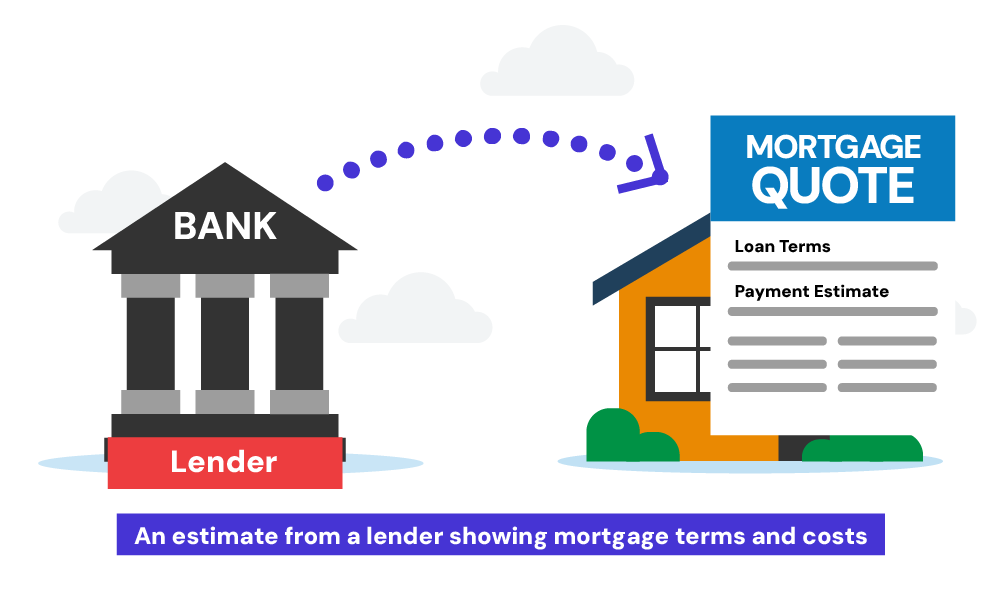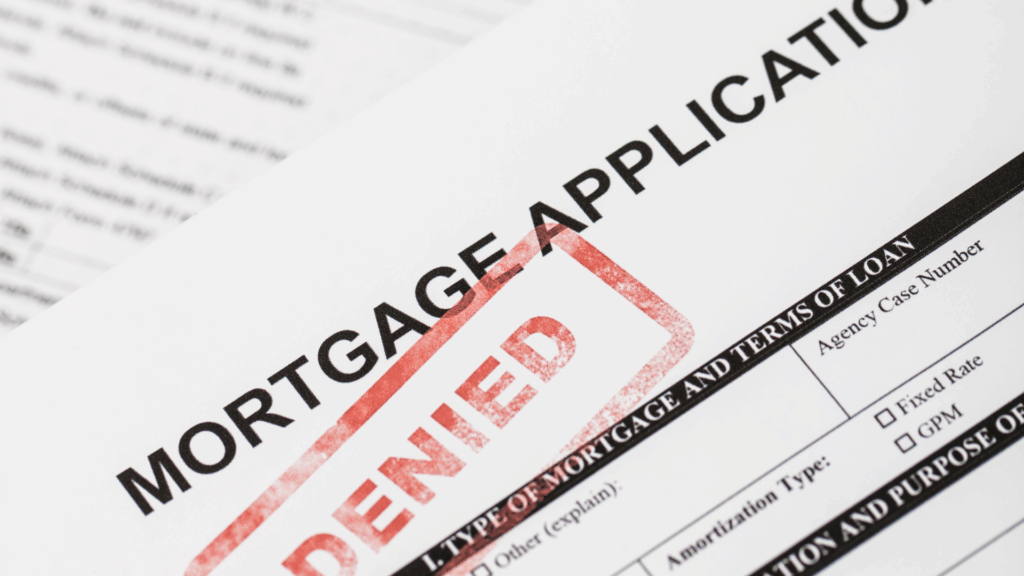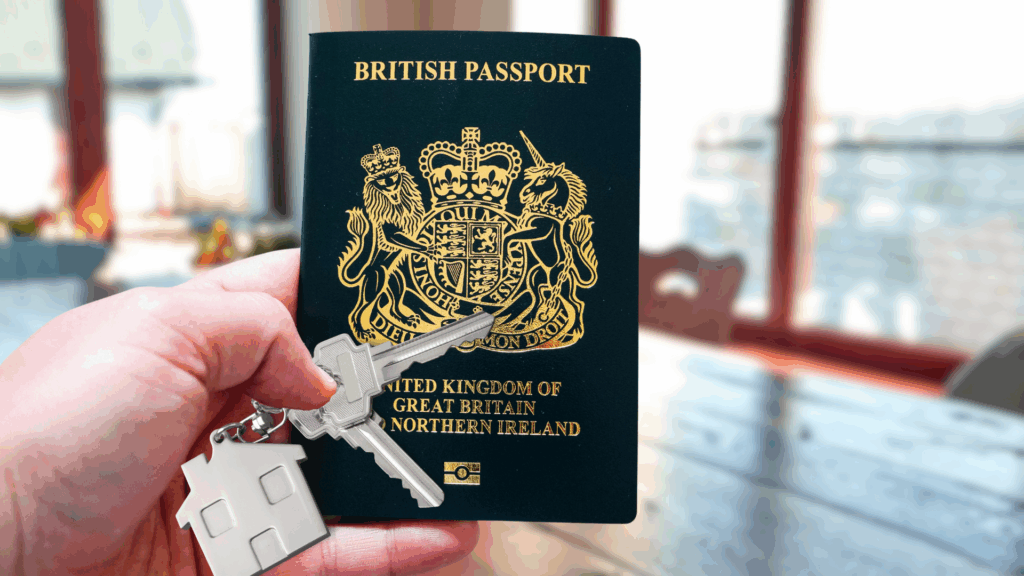How To Get The Best Online Mortgage Quotes: A Guide

You’re browsing property listings, picturing that perfect home.
Then it hits you – how will you afford it?
Interest rates, repayment terms, APR – it’s overwhelming. This is where mortgage quotes step in, and they’re more important than you think.
Skipping mortgage quotes is like buying a car without checking under the bonnet. They’re your key to financial confidence, not sleepless nights wondering if you’ve made a costly mistake.
In this article, we explain mortgage quotes for you. We’ve covered what they are, why you need multiple quotes, and how to get them.
You’ll learn to compare offers like a pro, avoid common pitfalls, and secure the best deal for your situation.
Whether you’re a first-time buyer, or remortgaging, knowing mortgage quotes is a key step to homeownership.
Let’s get started!
What is a Mortgage Quote?
A mortgage quote is an initial estimate provided by a lender, detailing the terms and costs of a potential mortgage. It gives you a snapshot of what you might expect to pay if you proceed with a mortgage application.
This quote typically includes:
- The interest rate
- Monthly repayments
- Loan term
- Fees and charges
- The total amount you’ll repay over the life of the mortgage
Remember, a mortgage quote isn’t a guarantee or a formal offer.
It’s a starting point for your mortgage journey, helping you understand what might be available to you based on the information you provide.

Why Online Mortgage Quotes Matter
You might wonder why you should bother with mortgage quotes. After all, isn’t it just another step in an already complex process?
The truth is, getting mortgage quotes is crucial for several reasons, such as:
- Compare offers from different lenders to find the best deal.
- Get a clear idea of potential costs for better financial planning.
- Strengthen your negotiation position with quotes from multiple lenders.
- Explore various mortgage products and terms to find the best fit.
- Quickly eliminate unsuitable options to streamline your mortgage search.
- Identify areas needing financial improvement before applying for a mortgage.
Getting mortgage quotes online is a quick and easy way to start your home-buying journey on the right foot.
It’s an essential step that can save you thousands of pounds over the life of your mortgage.
How Many Mortgage Quotes To Get?
When it comes to getting mortgage quotes, more is generally better. But how many is enough?
Experts recommend getting at least three to five quotes. This number gives you a good range of options without overwhelming you.
Each lender has its own way of assessing borrowers, so you might see a big difference in offers even with the same financial info.
While it might be tempting to get quotes from every lender, be mindful of your credit score. Too many hard credit checks in a short time can hurt your score.
However, most credit scoring models treat multiple mortgage inquiries within 14-45 days as a single inquiry, so try to get your quotes within this period.
How To Request a Mortgage Quote?
Requesting a mortgage quote has never been easier, thanks to the digital age. Here’s a step-by-step guide to help you through the process:
- Gather necessary information. Before you start, collect details about your income, expenses, debts, and the property you’re interested in.
- Choose your platform. You can request quotes online, over the phone, or in person at a bank or building society.
- For online quotes.
- Visit lender websites or use mortgage comparison sites
- Fill out the online form with your details
- Submit your request
- For phone or in-person quotes:
- Contact the lender to schedule a call or appointment
- Prepare to discuss your financial situation and mortgage needs
- Provide accurate information. The more precise your details, the more accurate your quote will be.
- Specify your preferences. Let the lender know what type of mortgage you’re interested in (fixed-rate, variable, etc.) and your preferred term.
- Ask questions. Don’t hesitate to seek clarification on any terms or conditions you don’t understand.
- Review the quote. Once you receive the quote, carefully examine all the details, including interest rates, fees, and repayment terms.
Remember, getting a mortgage quote online is often the quickest and most convenient method.
Many lenders offer instant online quotes, allowing you to compare options easily from the comfort of your home.
How To Shop for Mortgages and Compare Rates?
The best mortgage deal can save you a lot of money over the life of your loan.
Here’s how to shop smart:
1. Understand Your Needs
Before searching for a mortgage, decide which type best suits you. The UK offers several mortgages, each with pros and cons.
A fixed-rate mortgage keeps your interest rate the same throughout the loan. This is ideal for predictable payments and long-term homeownership.
It protects you from interest rate hikes.
A tracker mortgage links your interest rate to the Bank of England base rate plus a set amount.
Initially lower than fixed rate, it can rise if the base rate increases.
A standard variable rate (SVR) mortgage has an interest rate set by the lender. It can change, often following the base rate, but not always. SVRs are flexible but unpredictable.
Consider the loan term too.
Longer terms mean lower monthly payments but more interest overall. Shorter terms mean higher payments but less overall interest and quicker equity build-up.
Choose a mortgage based on your finances, plans, and risk tolerance. Consider your income, how long you’ll stay in the property, and your comfort with payment changes.
2. Check your credit report
Your credit score affects your mortgage rate, so check it before applying.
Get a free credit report from Experian, Equifax, or TransUnion to see your creditworthiness and spot any issues.
Look for errors or outdated information and dispute them quickly, as mistakes can hurt your score. This process takes time, so start early.
Your credit utilisation – the amount you owe compared to your credit limit – is important. Aim for less than 30% to boost your score. Pay off credit card balances to reduce this.
Lenders check your payment history. Consistent, on-time payments show reliability. If you’ve missed payments, work on improving your record.
Avoid new credit before applying for a mortgage, as each application can lower your score temporarily. A stable credit profile makes you a lower risk.
Improving your credit score takes time, but it’s worth it.
A better score means lower mortgage rates, saving you money. Optimise your credit report to get the best mortgage deal.
3. Look beyond the interest rate
While the interest rate matters, don’t forget to consider:
- Annual Percentage Rate (APR) – The total yearly cost of your mortgage, including interest and fees.
- Fees and closing costs – Extra costs to get a mortgage, like application and legal fees.
- Loan terms – How long you have to pay back the mortgage, such as 15 or 30 years.
- Prepayment penalties – Fees for paying off your mortgage early.
Remember, the lowest rate isn’t always the best deal. Think about the total cost of the mortgage over its full term, including all fees and charges.
4. Be wary of rate promises
If a rate looks too good to be true, it probably is. Those tempting low rates might have strict conditions or hidden fees.
Always read the fine print and understand all the terms. This will save you from unpleasant surprises later.
5. Consider using a mortgage broker
A mortgage broker can be a great help in finding the right mortgage. They have access to special deals and can give advice that suits your needs.
With their help, you can understand the mortgage market better and find a loan that fits you.
Your broker will negotiate with lenders on your behalf and get you the most accurate quotes, ensuring you secure the best mortgage possible.

Common Pitfalls to Avoid
When getting mortgage quotes, there are several mistakes you’ll want to avoid.
Being aware of these pitfalls can save you time, money, and stress:
- Focusing only on the interest rate. While important, it’s not the only factor. Look at the APR, which includes additional costs.
- Skipping the fine print. Understand all terms and conditions. Hidden fees or clauses can greatly impact your mortgage’s overall cost.
- Assuming all lenders are the same. Each lender assesses borrowers differently. Don’t assume you’ll get the same offer from everyone.
- Applying for too many quotes quickly. Multiple hard credit checks can hurt your credit score. Space out your applications if needed.
- Providing inaccurate information. Be honest and accurate. Incorrect details can lead to misleading quotes.
- Ignoring additional costs. Factor in stamp duty, valuation fees, and legal costs when budgeting for your mortgage.
- Falling for teaser rates. Some lenders offer low initial rates that rise significantly later. Consider the long-term cost.
- Overlooking your future plans. Choose a mortgage that fits your long-term goals. If you might move soon, a portable mortgage could be useful.
- Rushing the process. Take your time to fully understand each quote. Hasty decisions can lead to regrets.
- Not seeking advice. If you’re unsure about any part of the process, get advice from a financial advisor or mortgage broker.
Avoiding these common mistakes will help you find a mortgage that truly meets your needs and financial situation.
Tips for Getting the Best Mortgage Quote
Securing the best mortgage quote requires some strategy and preparation. Here are some top tips to help you get the most favourable terms:
- Boost your credit score. A higher score often leads to better rates. Pay off debts, correct errors on your credit report, and avoid new credit applications before seeking quotes.
- Save for a larger deposit. The more you can put down, the better the rates you’re likely to be offered. Aim for at least 10-15% if possible.
- Get your finances in order. Lenders will scrutinise your income and outgoings. Ensure your finances are stable and well-documented.
- Time it right. Mortgage rates can fluctuate. Keep an eye on market trends and be ready to act when rates are favourable.
- Be prepared to negotiate. Don’t be afraid to ask lenders if they can match or beat a competitor’s offer.
- Consider the overall package. Look beyond the headline rate. Factor in fees, cashback offers, and other incentives when comparing quotes.
- Check your eligibility before applying. Many lenders offer eligibility checkers that don’t affect your credit score. Use these to gauge your chances of approval before applying.
- Be honest and accurate. Provide complete and truthful information. Inaccuracies can lead to misleading quotes or rejected applications.
- Don’t ignore smaller lenders. Building societies and specialist lenders might offer competitive rates, especially if you have unique circumstances.
- Consider fixed vs variable rates. While fixed rates offer certainty, variable rates might be lower initially. Choose based on your risk tolerance and market outlook.
- Act quickly. Good rates don’t last forever. If you receive a favourable quote, be prepared to move forward promptly.
- Consider using a mortgage broker. They can access exclusive deals and provide expert advice tailored to your situation.
Key Takeaways
- A mortgage quote is your lender’s initial estimate of your potential mortgage costs. It’s a snapshot of what you could expect to pay.
- Use quotes to compare different mortgage deals. Focus on the total cost of the mortgage, not just the monthly repayments. Always read the small print and shop around to find the best deal for you.
- Getting a mortgage quote is quick and easy online.
- To improve your chances of getting a great mortgage deal: build your credit score, save a larger deposit, and shop around for the best rates.
The Bottom Line
Mortgage quotes are essential for making informed decisions. They show you potential costs and help you compare lenders.
While getting an instant quote online is convenient, it has drawbacks. You won’t see every deal and might pay more in the long run.
A good mortgage broker can offer a more comprehensive view of the market.
They find accurate mortgage quotes, explain them, and unlock deals you might miss. On top of that, they improve your chances of getting the best mortgage deal.
This saves you from stress, time, and money, so you can focus on other things.
Remember, don’t settle for the first quote. Explore your options to find a mortgage that aligns with your long-term financial goals.
Whether you’re a first-time buyer, remortgaging, or investing in a buy-to-let property, thorough research and careful comparison are key.
Need expert help? Get in touch. We’ll instantly connect you with a qualified mortgage broker who can compare quotes and guide you through your mortgage application.
Get Matched With Your Dream Mortgage Advisor...

Frequently asked questions
Do I need to get a mortgage quote when remortgaging?
Yes, getting mortgage quotes when remortgaging is essential. Your financial situation might have changed, and there could be better deals out there.
Property values can rise, which could mean better mortgage terms for you. Plus, other lenders might offer much cheaper deals than your current one.
Don’t assume your current lender will give you the best deal. Compare quotes to find the best option.
Can I apply for a buy-to-let mortgage online?
Yes, you can apply for a buy-to-let mortgage online. Many lenders now offer this for convenience.
The process is similar to applying for a home loan, but you’ll need extra information about the property’s potential rental income. Some lenders might ask for more documents or a follow-up call.
Using an online mortgage broker can help you compare different buy-to-let mortgages.
Remember, buy-to-let mortgages have stricter rules than regular home loans. If you’re unsure about eligibility or the best deal, seek advice.
Do I need to apply online for mortgages?
You don’t have to apply for a mortgage online. While it’s popular and convenient, you have other options.
- Visit a branch – You can apply in person at your local bank, building society, or mortgage broker. This lets you talk face-to-face and get answers straight away.
- Apply by phone – Many lenders offer phone applications as a middle ground.
- Send a paper form – Some lenders still accept postal applications, but this is less common.
Online applications are quick and easy, especially if you’re tech-savvy and have a simple financial situation. However, if you prefer personal interaction or have a complex situation, applying in person or by phone might be better.
No matter how you apply, compare offers to find the best deal for you.




